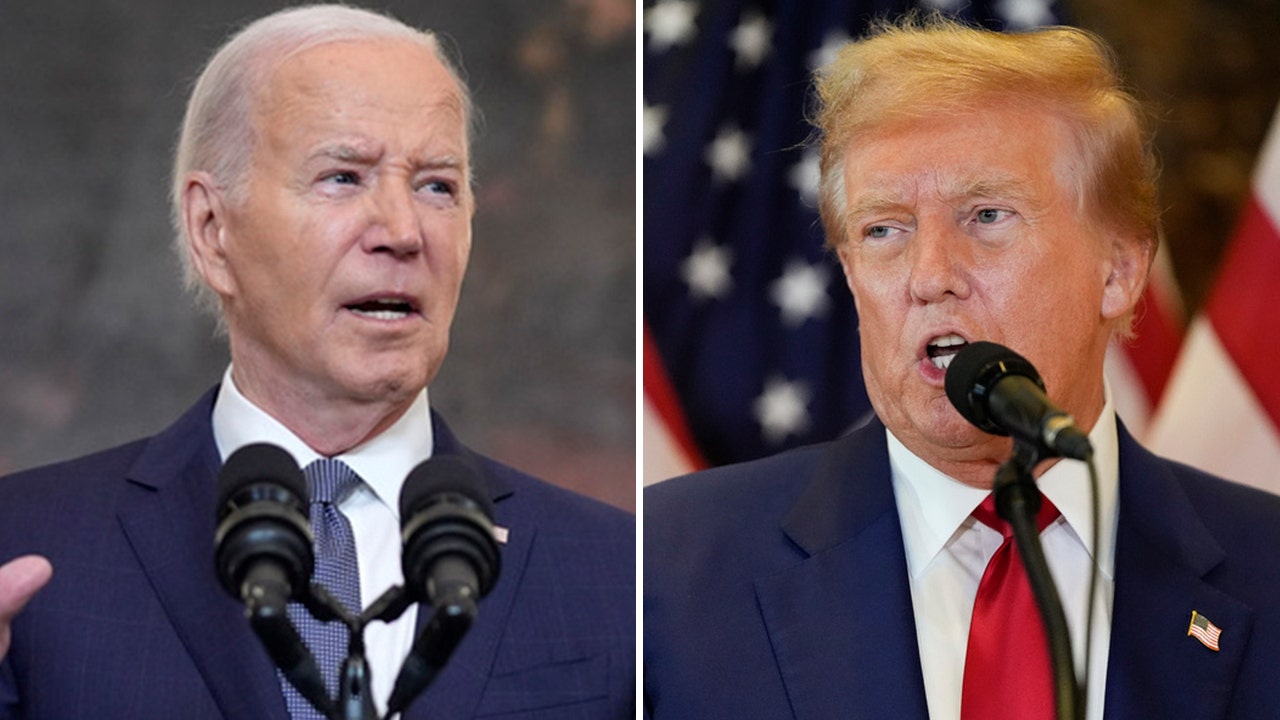On May 16, the U.S. Supreme Court rejected the notion that the way the operations of the Consumer Protection Finance Bureau (CFPB or Bureau)—a powerful regulatory agency created by Congress to protect fair treatment of consumers after the 2008 Financial Crisis—are financed runs afoul of the so-called Appropriations Clause of the Constitution. That Clause, housed in Article I, § 9, provides in relevant part that “No money shall be drawn from the treasury, but in consequence of appropriations made by law.” Challengers to the CFPB argued that because, under the Dodd-Frank statute creating and empowering the CFPB, the Bureau receives its operating monies from the earnings of the Federal Reserve System rather than via a yearly budget law approved by Congress, the strictures of the Appropriations Clause have not been respected. They won on this argument in the lower court.
But last week, the Supreme Court, in Consumer Financial Protection Bureau v. Community Financial Services Association of America, Ltd., reversed. In an opinion of the Court for himself and six other Justices, Justice Clarence Thomas explained that:
Under the Appropriations Clause, an appropriation is simply a law that authorizes expenditures from a specified source of public money for designated purposes. The statute that provides the Bureau’s funding meets these requirements. We therefore conclude that the Bureau’s funding mechanism does not violate the Appropriations Clause.
The ruling was, predictably, cause for celebration among fans of the Bureau, including its chief congressional architect, Senator Elizabeth Warren (D-MA). But in an op-ed in this week’s Wall Street Journal, Emeritus Harvard Law Professor Hal Scott (a colleague of Senator Warren when she served on the Harvard Law faculty) wrote the following:
Not so fast. It’s true that CFPB v. Community Financial Services Association of America, a 7-2 decision . . . held that the Constitution’s Appropriations Clause authorizes Congress to fund the bureau with profits from the Federal Reserve. The Appropriations Clause requires that any money “drawn from the Treasury” be pursuant to “appropriations made by law.” Justice Thomas observe[d] that under the Federal Reserve Act, “surplus funds in the Federal Reserve System would otherwise be deposited into the general fund of the Treasury.” Since the money would otherwise have gone to the Treasury, it counts as having been “drawn from the Treasury” and therefore the law redirecting it complies with the Appropriations Clause. But for nearly two years the Fed has been losing money because of rising interest rates. Even if the Fed can justify [continued] payment [in recent years under the terms of] the Dodd-Frank statute, the constitutional problem remains. Since the Treasury no longer receives any surplus from the Fed, central-bank funding can no longer be considered “drawn from the Treasury.” This means the agency can’t rely on the Appropriations Clause—or last week’s decision by the high court—to justify the legality of its continued operations. That calls into question the legitimacy of the CFPB’s funding since September 2022—and all regulations issued during that period. The CFPB’s dramatic victory may turn out to be a stunning defeat [emphasis added and some sentences reordered for clarity].
Before I analyze Professor Scott’s take on the case, let me say that I have not always been a fan of what I see the CFPB doing. But putting that to one side, and with all due respect to Professor Scott (whom I do not know but who seems to be a true leader in his regulatory fields), the notion that last week’s case could end up being a defeat for the CFPB is simply wrong, and it reflects a failure to read the Court’s opinion carefully and to understand constitutional law basics. That is not to say that the ruling last week insulates the CFPB from future challenges based on other constitutional claims, but Professor Scott’s contention that the decision (combined with changes in the real world) could itself enable another challenger to succeed against the CFPB on a claim based on the Appropriations Clause is wide of the mark.
The fundamental problem with Professor Scott’s argument is his apparent belief that the Appropriations Clause was, in the eyes of the Court, a shield successfully invoked by the CFPB to justify the Bureau’s funding. It was no such thing. The Court found only that the Appropriations Clause was not the sword that the challengers thought it was. In this respect, Professor Scott’s logical mistake is in suggesting that the Bureau “rel[ied] on the Appropriations Clause . . . to justify the legality of its continued operations.” Instead, the Bureau simply defeated the notion that the Appropriations Clause was something on which the challengers could rely.
To see the point another way, note that the Court invoked the fact that Federal Reserve surplus funds not given to the CFPB would otherwise have been deposited with the Treasury only to make clear that the Bureau’s funding mechanism must adhere to requirements of the Appropriations Clause (whatever those requirements might be):
As a threshold matter, the parties agree that the Bureau’s funding must comply with the Appropriations Clause. The Appropriations Clause applies to money “drawn from the Treasury.” Art. I, §9, cl. 7. The Bureau draws money from the Federal Reserve System. 12 U. S. C. §5497(a)(1). And, surplus funds in the Federal Reserve System would otherwise be deposited into the general fund of the Treasury. §289(a)(3)(B). Whatever the scope of the term “Treasury” in the Appropriations Clause, money otherwise destined for the general fund of the Treasury qualifies (emphasis added).
To repeat, Professor Scott suggests that money directed from the Federal Reserve to the Bureau in years where there is no Fed surplus is not money “drawn from” the Treasury, since that Bureau-funding money would never have been deposited in the Treasury. (In this regard, it appears that only Fed surpluses, and not all Fed revenues, are placed in the Treasury general fund). But even if his suggestion here is correct—and that itself might be debatable—all that means is that any Appropriations Clause challenge against CFPB funding would be all the weaker, since the limitations of the Clause simply wouldn’t be applicable in the first place. To the extent that Professor Scott is suggesting that Clause has any application to funds not drawn from the Treasury, he is not reading constitutional text or the Court’s own words very carefully.
Of course, the Appropriations Clause isn’t the only constitutional game in town, and someone might make other constitutional arguments against the CFPB. But the meaning of the Appropriations Clause is the only question the challengers raised, the only one that was at issue in last week’s case, and thus the only one to which last week’s ruling speaks.
Indeed, the Court made itself quite clear on these points:
The [challengers, in arguing that the Appropriations Clause requires more active Congressional oversight than occurred here] err by reducing the power of the purse to only the principle expressed in the Appropriations Clause. To be sure, the Appropriations Clause presupposes Congress’ powers over the purse. But, its phrasing and location in the Constitution make clear that it is not itself the source of those powers. [Emphasis added]. The Appropriations Clause is phrased as a limitation: “No Money shall be drawn from the Treasury, but in Consequence of Appropriations made by Law.” . . . And, it is placed within a section [Article I, § 9] of other such limitations [such as] “No Bill of Attainder or ex post facto Law shall be passed”) and “No Tax or Duty shall be laid on Articles exported from any State, [to be contrasted with Article I, § 8, which provides that] ”“The Congress shall have Power To . . . ”). The [challengers] offer no defensible [theory] that the Appropriations Clause [limitations] require[] more than [that Congress specify the purposes for which identified funds should be used]. Without such a theory, the [challengers’] Appropriations Clause challenge must fail.
Thus, although there might be other constitutional claims (besides violation of the Appropriations Clause) that people might try to raise against the way the Bureau is funded, last week’s opinion can never be invoked to affirmatively support such claims. (Indeed, the Court’s unwillingness to smuggle into the Appropriations Clause requirements not supported by historical practice tends to cut, at least to some extent, against other claims.)
Although I offer no firm opinion on the force of other kinds of constitutional arguments that may be advanced against the Bureau, I do note that Professor Scott, like the challengers last week, offers nothing beyond the (now debunked) invocation of the Appropriations Clause. In the event that Professor Scott might think that expenditure of federal monies that are not drawn from the Treasury (as he defines the Treasury) is inherently unconstitutional, he would need to flesh out that argument. He would also need to explain why (under his own terms) the Federal Reserve itself is able to operate and spend money from its revenues these days, since (as pointed out above) federal statutes seem to require that only the Fed’s surplus, and not all Fed revenues, be deposited in what Professor Scott defines as the Treasury. In any case, and most importantly, such an argument has nothing to do with last week’s ruling,
I should also note that, at a more basic constitutional level, the Bureau’s statutory responsibilities (of consumer protection) seem to be amply supported by several of Congress’s powers (including the power to regulate commerce among the several states), and the federal government’s general ability to spend money even when it is running a deficit seems obviously permissible given that Congress has been given the power to borrow money on the credit of the U.S.
In addition to constitutional claims, someone might challenge as a statutory violation the CFPB’s funding in years when the Fed is in deficit. The meaning under Dodd-Frank of the Federal Reserve System’s “earnings” (from which CFPB funding is supposed to come) in years when the Fed is operating at a deficit is something that may need to be resolved (and something on which I have little to observe, except that “earnings” is a term that, even if it refers to bottom rather than top lines, needn’t always have to be understood by reference to a particular year). But that (perhaps interesting and important) statutory question is distinct from any constitutional constraints, and Professor Scott, in his op-ed, explicitly puts the meaning of the statute to one side and focuses instead on what he sees as “the constitutional problem” that remains. With regard to the Constitution, although the ruling isn’t an all-purpose constitutional clean bill of health for the Bureau (no ruling ever purports to insulate any entity from attacks beyond those made in the case at hand), there is no sense in which the “CFPB’s dramatic victory may turn out to be a stunning defeat.” At worst, it might not turn out to be a victory that resolves all other possible attacks, but that is always true, and Professor Scott doesn’t even seek to sketch any plausible constitutional attacks that should or will ensue.

























